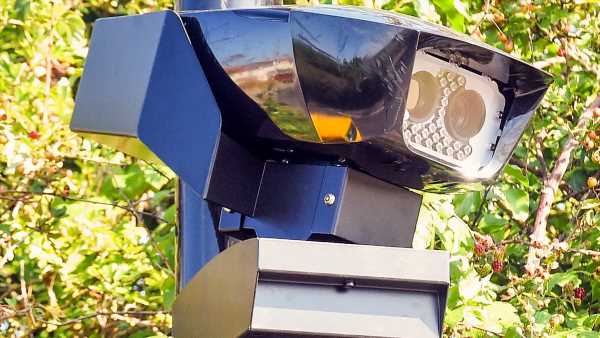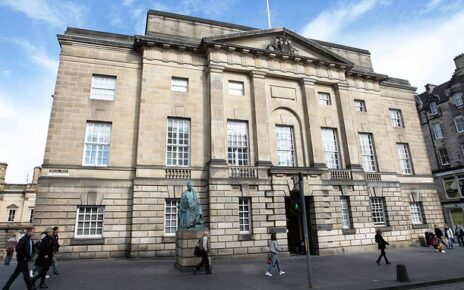As many as two MILLION motorists could be doctoring their own number plates to avoid controversial new low traffic fines like Sadiq Khan’s Ulez expansion
- One-in-fifteen drivers may be using anti-ANPR technology
- An expert said that this figure was likely to rise following the Ulez expansion
- ANPR-defeating technology is being openly sold on the internet
Up to two million British motorists could be doctoring their number plates to avoid being caught out by specialised cameras designed to enforce Ulez zones and speed limits, a police investigation has suggested.
A report prepared for British ministers by Tony Porter, the former surveillance camera commissioner, revealed that 6% of cars had some sort of technology to defeat automated number plate recognition [ANPR] cameras.
The study, conducted from an ANPR camera trained on a dual carriageway in Gatwick found that 41 out of 683 number plates used some kind of anti-ANPR tech.
If this were extrapolated to the rest of the country, then one-in-fifteen UK may have some kind of anti-ANPR tech.
He also pointed to another study which found that 40% of taxis and private hire cars had some sort of ANPR-defeating technology.

Sadiq Khan’s Ulez expansion is set to increase the usage of anti-ANPR tech across Britain, an expert claimed

One-in-fifteen drivers maybe using ANPR-defeating technology

A police study also found that 40% of taxis and private hire vehicles use some form of ANPR-defeating technology

Some British drivers have already made their feelings about the Ulez expansion clear

The Ultra low emission zone expanded to cover all of London on Tuesday
READ MORE: ‘Thousands’ of protesters rally in Cambridge to oppose £5 congestion charge
The technology is already very readily available to everyday consumers.
Fake number plates can be bought for as little as £10 from any of the 40,000 largely unregulated sellers while reflective ‘stealth’ tape to make plates invisible to ANPR infrared cameras can be purchased online for just £80.
And their use is expected to rise following the expansion of Ulez in London, as well as the overall growth of ANPR across the country.
‘It’s not rocket science. A lot of people will think they don’t want to embark on criminal damage of Ulez cameras but will be tempted to doctor their number plate to save £12 a day,’ he told the Telegraph.
‘The lack of regulation of the market for plates means we are exposing people to criminality,’ he added.

Pictured: The new Ulez expansion. The Chessington peninsula sticks out at the bottom left

Visitors to Chessington can park in Epsom and Ewell and get on the 467 bus to the theme park. This way, they will avoid a £12.50 Ulez charge and £8 parking at the theme park on weekends

Liberal Democrats leader Sir Ed Davey, who is also the MP for Kingston and Surbiton, has called for the Ulez zone in Chessington to be pushed further north
READ MORE: More spy cameras are stolen by activists as Sadiq Khan faces growing backlash over expansion of hated scheme which sees motorists charged £12.50 EVERY time they drive
There are estimated to be just six DVLA enforcement officers to cover the 40,000 outlets selling number plates.
It costs just £40 to register as a number plate supplier, and even if registration is withdrawn, a trader can still continue to trade or re-register under a different name.
‘It is increasingly common to encounter the sale of number plates to people openly at car fairs for example, or on internet sites, in circumstances where no proof of ownership or identity is required,’ Porter said.
On top of this, the former surveillance camera tsar said that anti-ANPR tech is being openly sold on the internet with little repercussion.
He said in a letter to Suella Braverman, the Home Secretary: ‘There is a paucity of any credible or effective controls which govern the production, manufacture and supply of materials to construct number plates, nor are there any meaningful security provisions for the number plates themselves.
‘The current regime in this country renders the unlawful manufacture and use of number plates and the fitting of number plates which are unreadable to the ANPR system, a relatively easy undertaking with little risk of such an act being detected by the relevant authorities.
‘This problem is growing, as is borne out by current police experience.’
Source: Read Full Article


